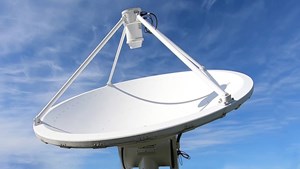FCC rejects SpaceX’s Starlink, LTD bid for $2 billion in broadband subsidies
(UC) — The U.S. Federal Communications Commission (FCC) rejected SpaceX's Starlink and LTD Broadband's long-form applications for more than $2 billion in internet service subsidies via the Rural Digital Opportunity Fund program, the FCC said on Wednesday.
“After careful legal, technical, and policy review, we are rejecting these applications. Consumers deserve reliable and affordable high-speed broadband,” FCC Chairwoman Rosenworcel said. “We must put scarce universal service dollars to their best possible use as we move into a digital future that demands ever more powerful and faster networks. We cannot afford to subsidize ventures that are not delivering the promised speeds or are not likely to meet program requirements.”
In December 2020, the FCC tentatively awarded $9.2 billion from the Rural Digital Opportunity Fund to over 300 bidders to deploy high-speed broadband. LTD Broadband received $1.32 billion in the 2020 auction, while SpaceX's Starlink satellite internet network received $885.5 million.
In a statement, the FCC said it determined that the applications failed to demonstrate that the providers could deliver the promised service. It added that funding the vast proposed networks would not be the best use of limited Universal Service Fund dollars to bring broadband to unserved areas across the United States.
“We applaud FCC Chairwoman Jessica Rosenworcel and her team for their commitment and intense scrutiny with the RDOF long form applications and for rejecting awards that will not serve the public good. Yesterday’s FCC announcement was a bold and decisive action that provides clarity and closure as we work together to close the digital divide once and for all,” said Fiber Broadband Association President and CEO Gary Bolton in a statement.
Although LTD was a relatively small fixed wireless provider before the auction, it was the largest winning bidder in the auction, submitting winning bids in 15 states. Subsequently, it failed to timely receive eligible telecommunications carrier status in seven states, rendering it ineligible in those states for support. Ultimately, the FCC review concluded that LTD was not reasonably capable of deploying a network of the scope, scale, and size required by LTD’s extensive winning bids.
The Commission separately announced that is ready to authorize $21,112,263 in broadband funding to three companies to deploy gigabit service to almost 15,000 locations in four states Tennessee, Texas, Utah, and Wyoming.
To date, the RDOF program has authorized more than $5 billion in funding to bring primarily fiber gigabit broadband service to over 3,000,000 locations in 47 states. With support from this program, hundreds of carriers have already begun deploying these future-proof networks to connect unserved areas.
Related News
From Archive

- Glenfarne Alaska LNG targets late-2026 construction start for 807-mile pipeline project
- U.S. water reuse boom to fuel $47 billion in infrastructure spending through 2035
- $2.3 billion approved to construct 236-mile Texas-to-Gulf gas pipeline
- Major water pipe break in Puerto Rico hits over 165,000 customers
- Potomac River Tunnel project enters construction phase beneath Washington, D.C.
- Pennsylvania American Water launches interactive map to identify, replace lead water service lines
- Trump's tariffs drive $33 million cost increase for Cincinnati sewer project
- Utah city launches historic $70 million tunnel project using box jacking under active rail line
- Tulsa residents warned after sewer lines damaged by boring work
- Fatal trench collapse halts sewer construction in Massachusetts; two workers hospitalized




Comments